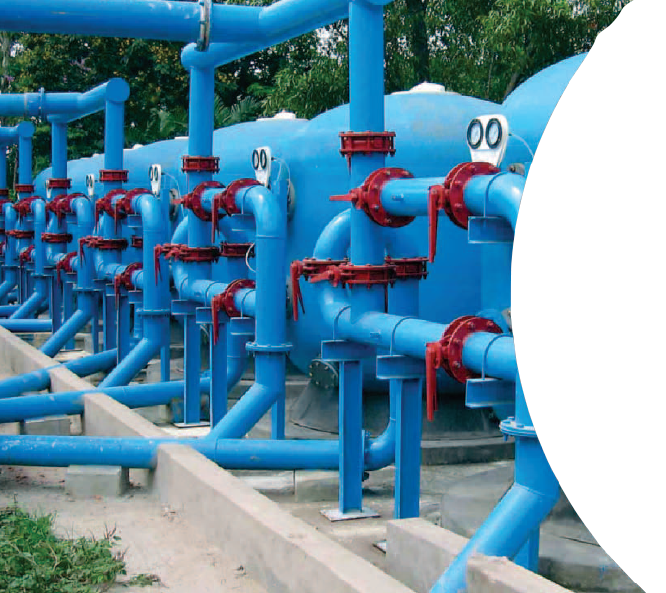Multi-Grade Filter
The latest concept in the water treatment technology, a Multi-Grade Filter consists of vertical or horizontal pressure sand filters that contain multiple layers of coarse and fine sand (pebbles and gravels) in a fixed proportion. It is a kind of a deep filter bed with adequate pore dimensions for retaining both large and small suspended solids and un-dissolved impurities like dust particles. As compared to a conventional sand water filter, this multigrade filtration system works on higher specific flow rates. It is also a low-cost pre-treatment system for ion exchangers (deionizer and softener) and membrane systems such as reverse osmosis etc. With high throughputs, high dirt-holding capacity and capacity to reduce turbidity and TSS (< 5ppm) from water, it protects ion-exchange resins and membranes from physical fouling due to suspended impurities present in the water.

Activated Carbon Filter
Activated carbon filters are generally employed in the process of removing organic compounds and/or extracting free chlorine from water, thereby making the water suitable for discharge or use in manufacturing processes. Eliminating organics in potable water, such as humic and fulvic acid, prevents chlorine in the water from chemically reacting with the acids and forming trihalomethanes, a class of known carcinogens. Activated Carbon (AC) filtration, as with any water treatment method, is not capable of removing every possible type of contaminant. For example, sodium, microbes, fluoride, and nitrates cannot be removed with AC filtration. Water softening also cannot be achieved with AC filters. In addition, heavy metals, such as lead, can only be removed with a very specific kind of activated carbon water treatment, which is typically used only in residential point-of-use filters.